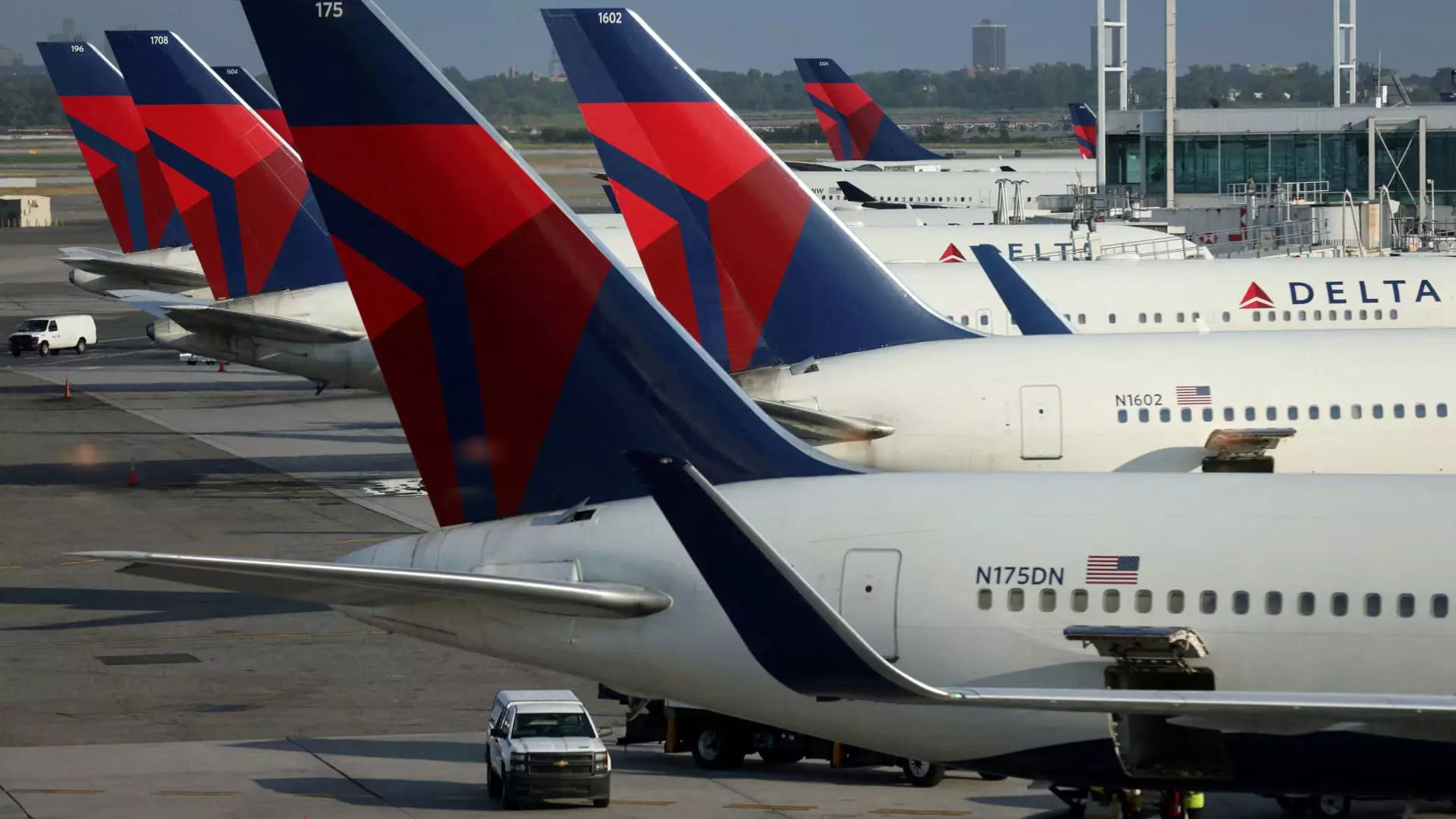In a significant legal turn, Delta Air Lines has initiated a lawsuit against cybersecurity firm CrowdStrike, focusing on allegations of breach of contract and negligence. The lawsuit stems from a catastrophic software failure in July that led to widespread disruptions across Delta’s operations. As a result, the airline experienced a staggering 7,000 flight cancellations, wreaking havoc on its service and causing substantial financial losses reported at approximately $380 million.
The heart of Delta’s complaint hinges on a flawed software update that affected computers operating on Microsoft’s Windows system. Despite Delta’s prior measures to disable automatic updates from CrowdStrike, the problematic update still infiltrated their systems, leading to chaos among numerous computers. Delta asserts that the incident not only inflicted immediate operational challenges but also compounded their financial burdens by an additional $170 million, attributed to recovery efforts and lost revenue.
Delta has enlisted the expertise of prominent lawyer David Boies from the law firm Boies Schiller Flexner, underscoring the severity of the issue and their intent to pursue significant damages. In their legal filing, Delta accuses CrowdStrike of reckless behavior, claiming the company “cut corners” and bypassed essential testing procedures that were ostensibly part of their protocol to safeguard clients. Delta’s assertion suggests that had proper testing measures been implemented, the updates would have faltered on a test computer, potentially averting the massive fallout experienced.
The repercussions of this incident extend beyond Delta’s immediate financial losses. As one of the major carriers, Delta’s operational failures during the outage have raised questions about the reliability and accountability of cybersecurity suppliers in critical sectors such as aviation. This situation exemplifies the cascading effects that software failures can have, particularly when they disrupt the travel plans of thousands of passengers and disrupt the broader airline network.
Furthermore, in light of this incident, CrowdStrike’s CEO George Kurtz issued an apology and acknowledged the necessity for systemic changes following the calamity. The recognition of flawed processes signifies a need for a thorough re-evaluation of security practices amongst software vendors. After this incident, even tech giants like Microsoft began discussing enhancements at a recent summit, highlighting the growing concerns concerning cybersecurity in an increasingly digital operational landscape.
Delta’s legal action sheds light on the broader implications for corporate accountability within software development and deployment. As the lawsuit progresses, stakeholders across various sectors will be watching closely, especially aviation and technology firms that rely on vendor partnerships to sustain their operations.
The outcome of this case could potentially set a precedent regarding liabilities in software failures and their repercussions on client operations. Additionally, this incident emphasizes the critical nature of rigorous testing and quality assurance in cybersecurity products, urging vendors to prioritize client safety over expediency—a lesson that resonates strongly in the high-stakes environment of global aviation.

